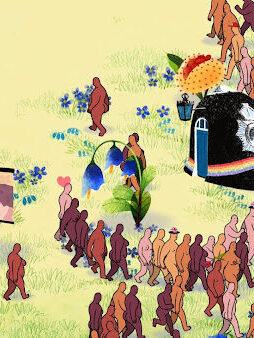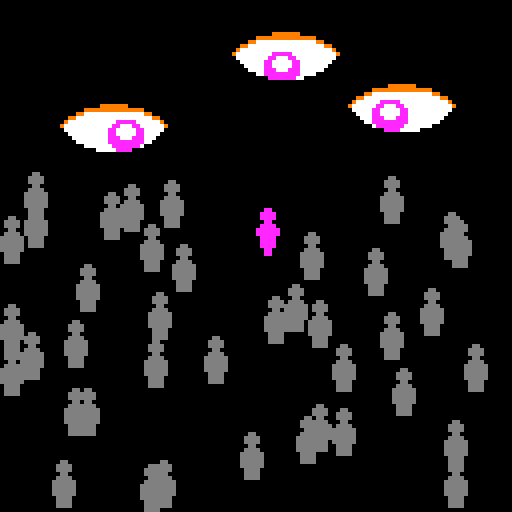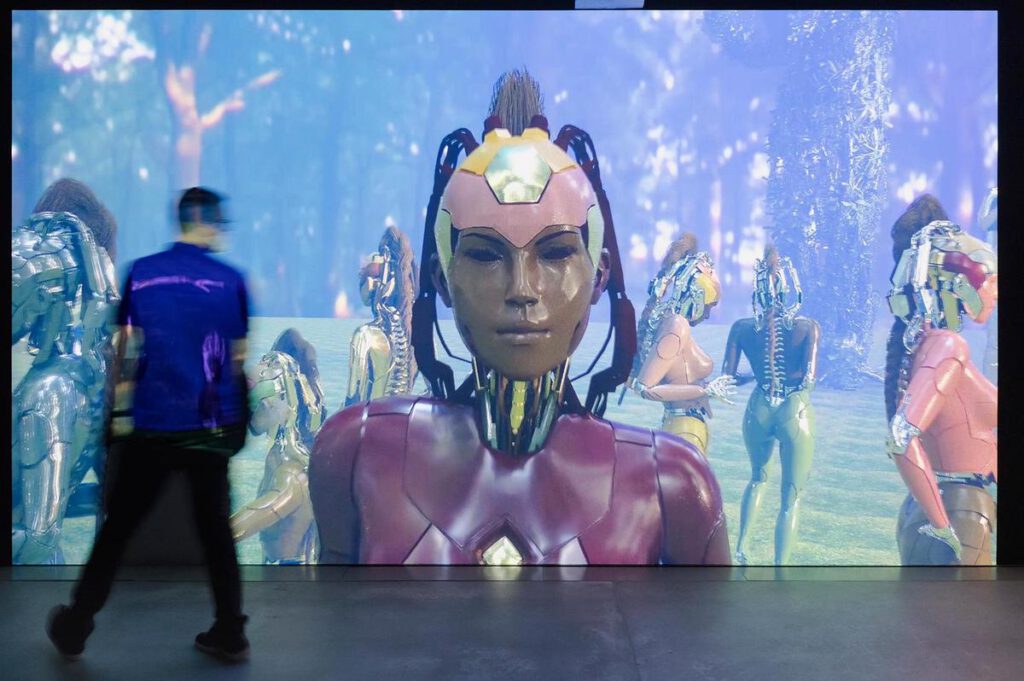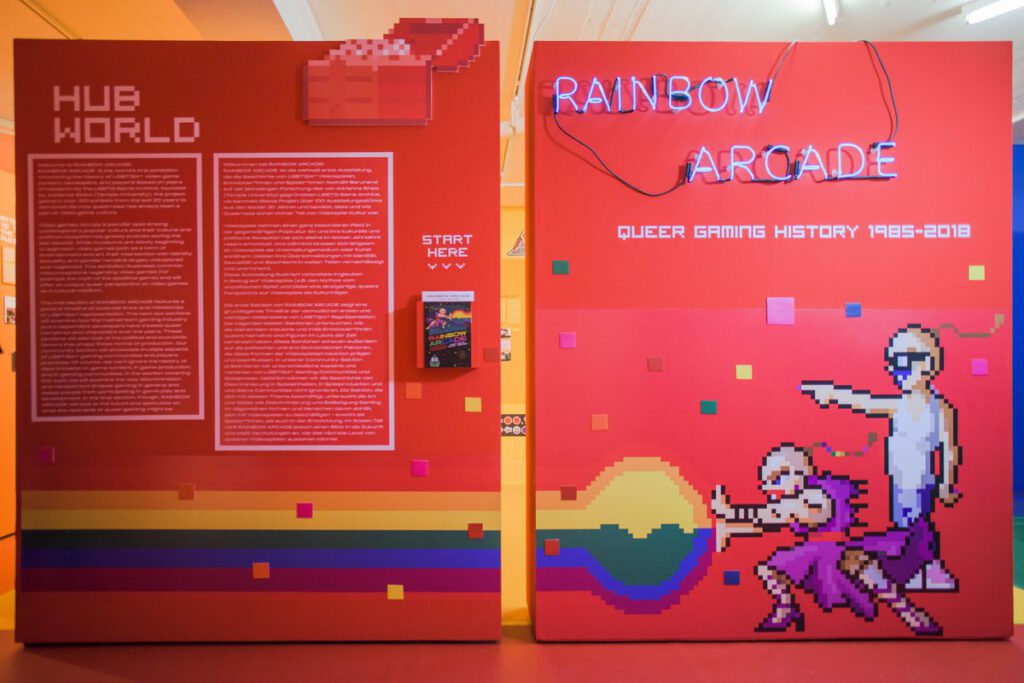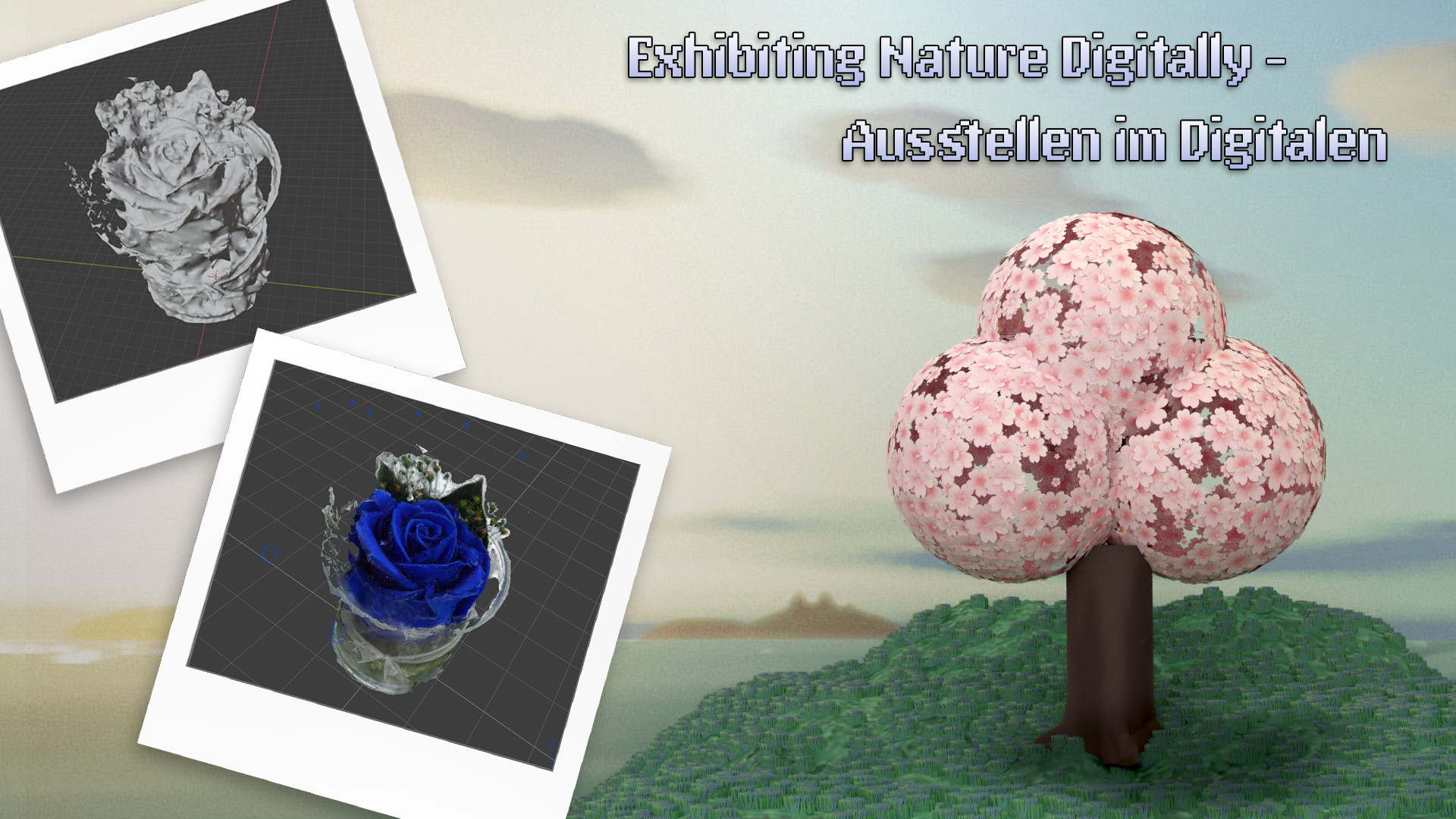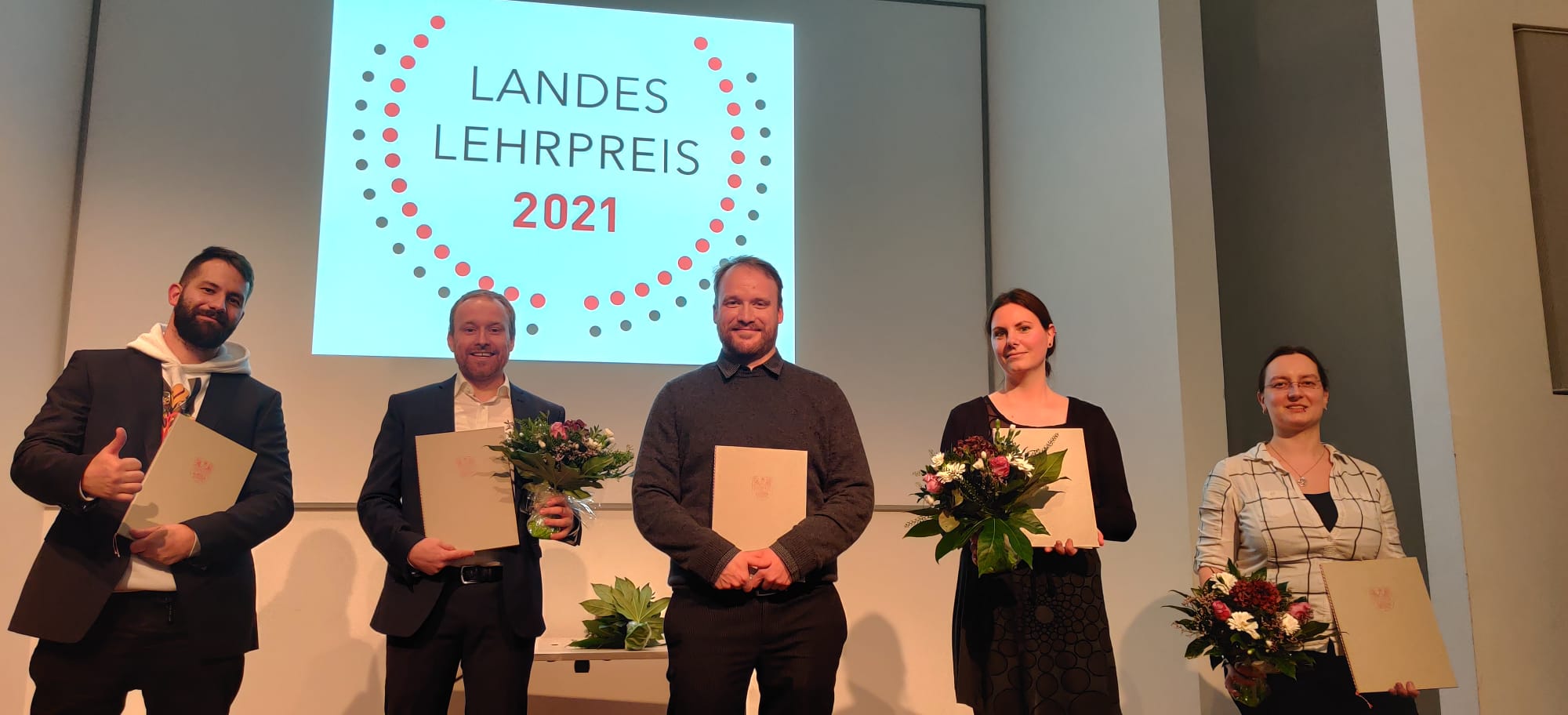#4genderstudies and games
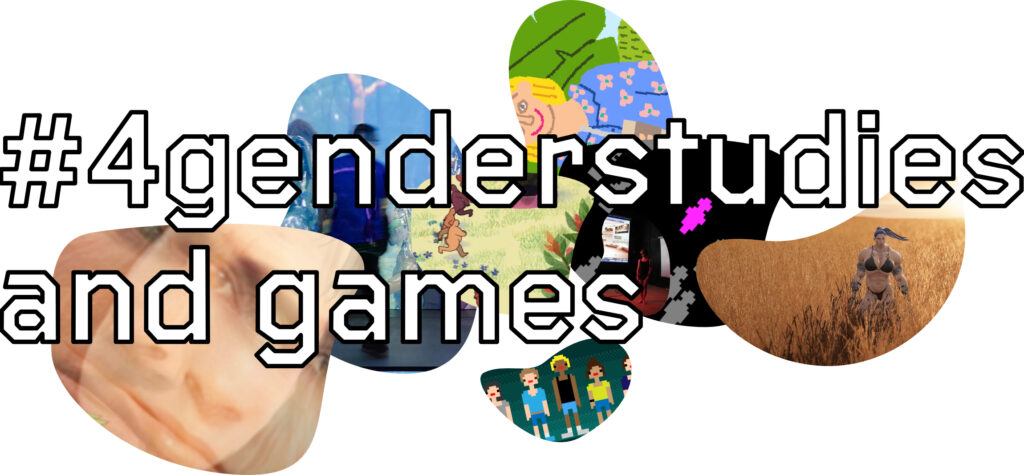
On the 18th of December every year, German academia organizes action on social media and through events and local formats in support of gender studies as a field of study. Increasingly attacked not only by those considered right-wing extremists but also by right-wing parties and governments, the day aims to highlight the necessity of gender studies and the reflection of gender in other disciplines of study.
In the context of game studies, there is a flourishing community of feminist, queer and anti-racist game designers, researchers and artists that consider not only representation in games and the game industry, but also imagine new futures through the medium of games (research). At DIGAREC, we stand in support of gender studies, and with our non-exhaustive collection of literature, exhibitions/archives and artworks, we aim to show the intersection of gender studies with the field of game studies.
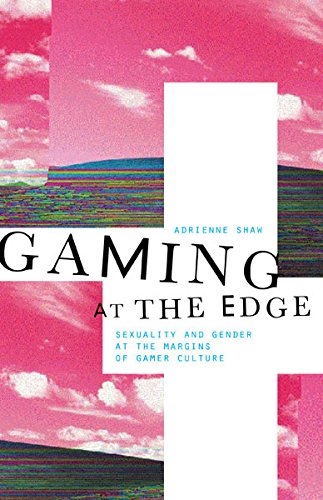
Gaming at the Edge ↗
Adrienne Shaw: Gaming at the Edge: Sexuality and Gender at the Margins of Gamer Culture. Minneapolis, MN: University of Minneapolis Press, 2014.
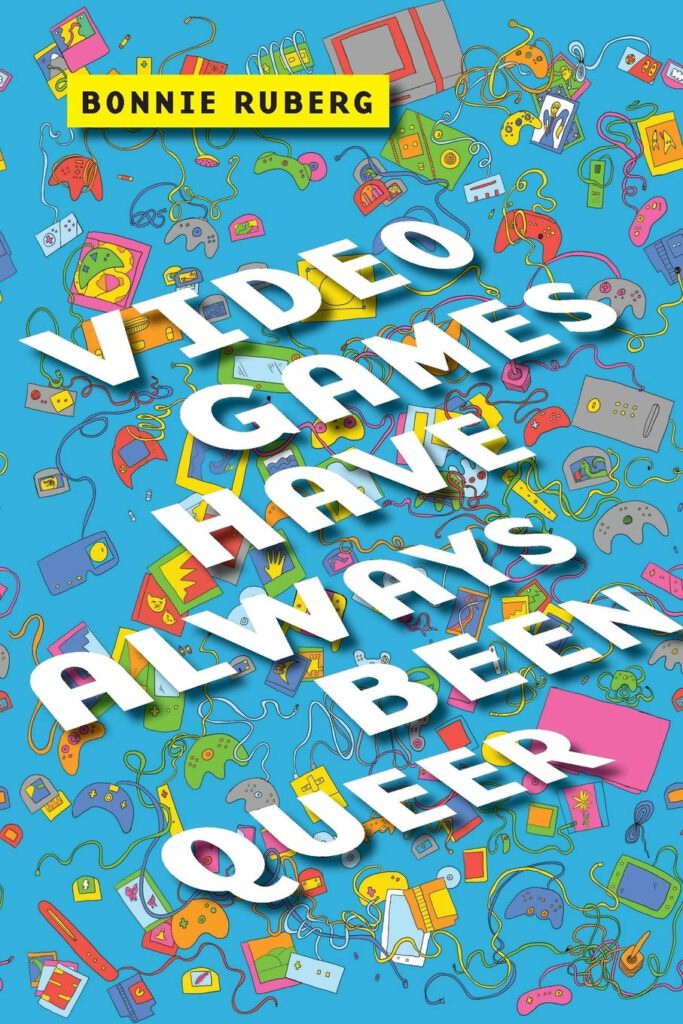
Video Games Have Always Been Queer ↗
Bonnie Ruberg: Video Games Have Always Been Queer. New York: New York University Press, 2019.
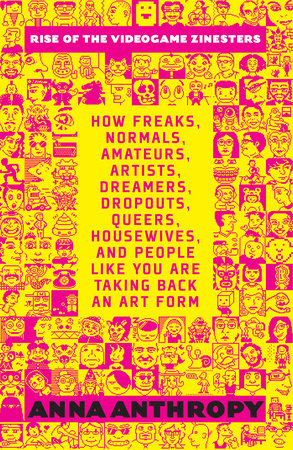
Rise Of The Videogame Zinesters ↗
Anna Anthrophy: Rise Of The Videogame Zinesters. New York : Seven Stories Press, 2012.
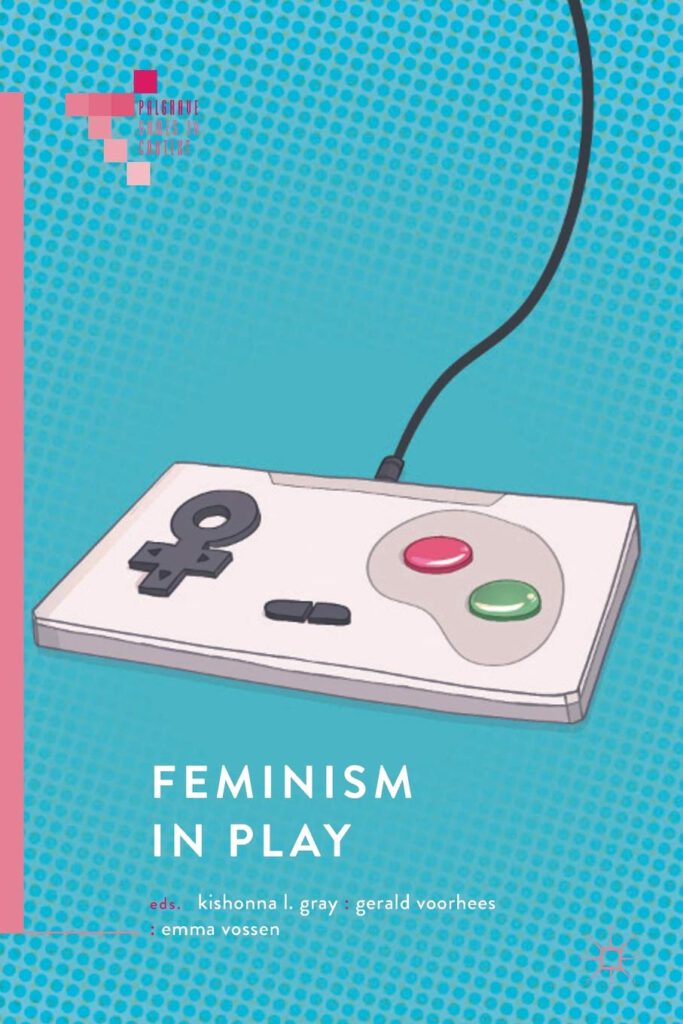
Feminism in Play ↗
Kishonna L. Gray / Gerald Voorhees / Emma Vossen (eds): Feminism in Play. Palgrave Games in Context. Cham: Palgrave Macmillan, 2018.
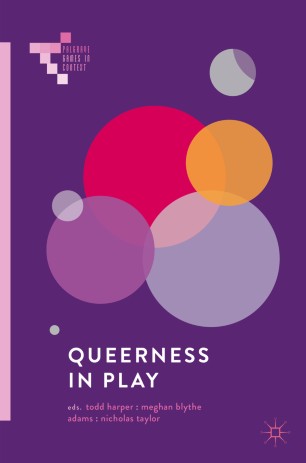
Queerness in Play ↗
Todd Harper / Meghan Blythe Adams / Nicholas Taylor / Gerald Voorhees (eds.): Queerness in Play.Palgrave Games in Context. Cham: Springer, 2018.
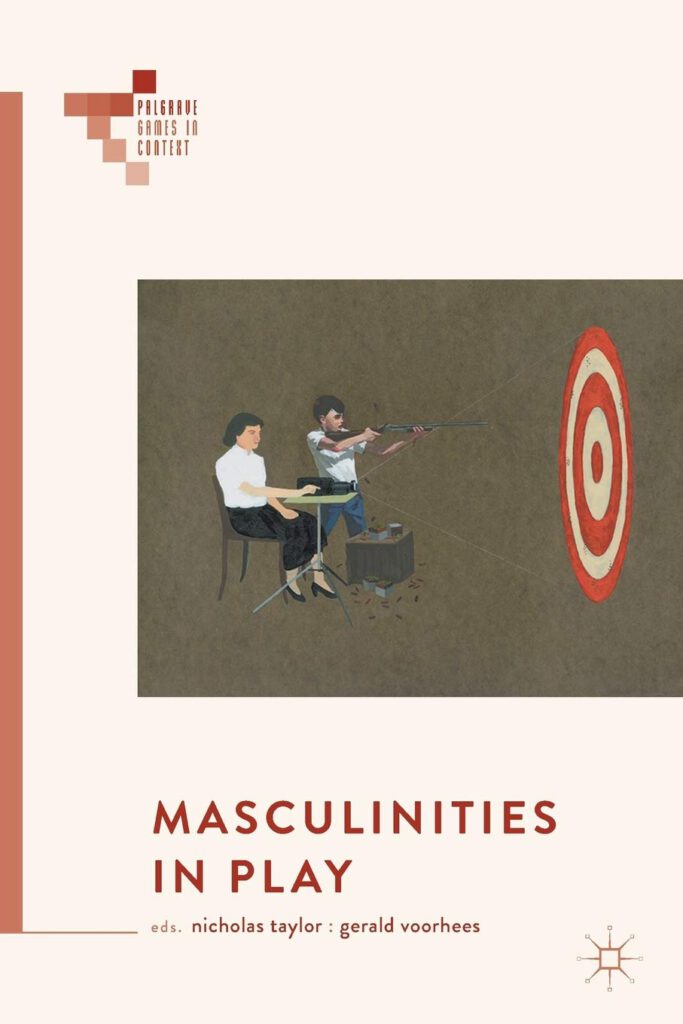
Masculinities in Play ↗
Nicholas Taylor / Gerald Voorhees (eds.): Masculinities in Play. Palgrave Games in Context. Cham: Palgrave Macmillan, 2018.
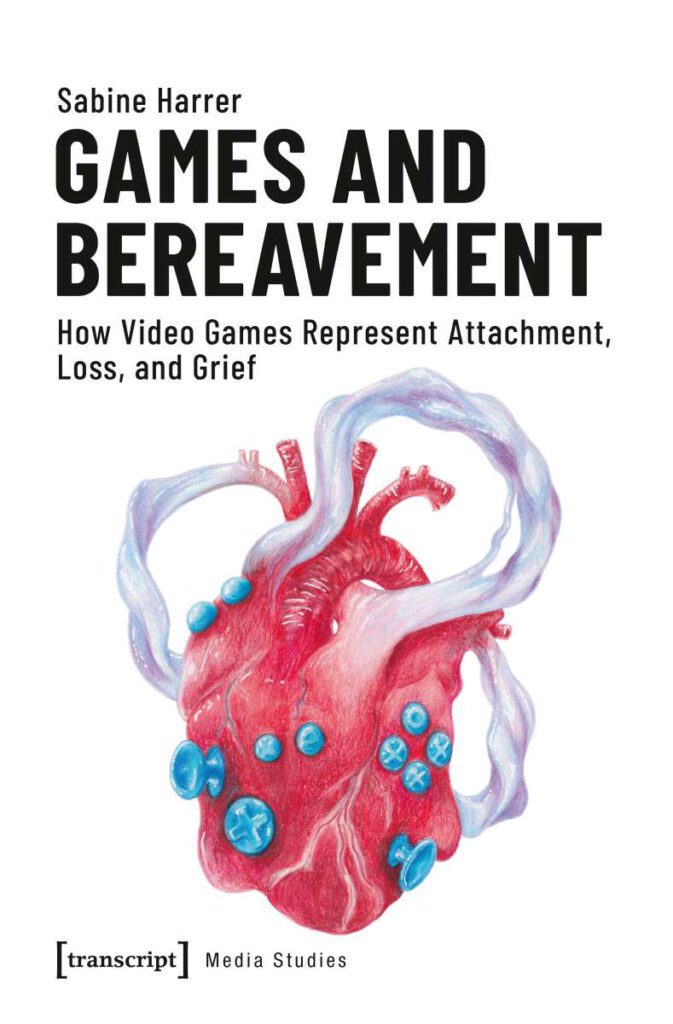
Games and Bereavement ↗
Sabine Harrer: Games and Bereavement: How Video Games Represent Attachment, Loss and Grief. Media Studies, volume 55. Bielefeld: transcript, 2018.
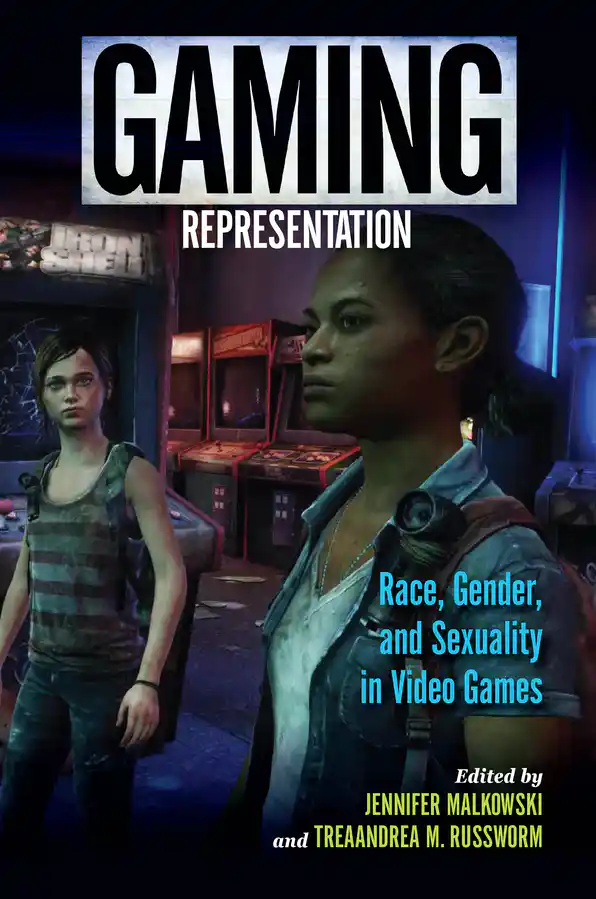
Gaming Representation ↗
Jennifer Malkowski und Trea Andrea M. Russworm (eds.): Gaming representation: race, gender, and sexuality in video games. Digital Game Studies. Bloomington: Indiana University Press, 2017.
LGBT Video Game Archive ↗
A game archive documenting the history of lesbian, gay, bisexual, transgender, and queer content in games (organized by Adrienne Shaw @ Temple University)
Anthropy, Anna. 2012a. Dys4ia. [Adobe Flash]. Newsgrounds. https://w.itch.io/dys4ia. ———. 2012b. Rise of the Videogame Zinesters: How Freaks, Normals, Amateurs, Artists, Dreamers, Dropouts, Queers, Housewives, and People like You Are Taking Back an Art Form. New York: Seven Stories Press. ———. 2012c. “The History of Magic.” In Rise of the Videogame Zinesters: How Freaks, Normals, Amateurs, Artists, Dreamers, Dropouts, Queers, Housewives, and People like You Are Taking Back an Art Form. New York: Seven Stories Press. Boellstorff, Tom, Bonnie Nardi, Celia Pearce, and T. L. Taylor, eds. 2012. Ethnography and Virtual Worlds: A Handbook of Method. Princeton: Princeton University Press. Braithwaite, Andrea. 2016. “It’s About Ethics in Games Journalism? Gamergaters and Geek Masculinity.” Social Media + Society 2 (4): 205630511667248. https://doi.org/10.1177/2056305116672484. ———. 2018. “Nancy Drew and the Case of Girl Games.” In Woke Gaming: Digital Challenges to Oppression and Social Injustice, edited by Kishonna L. Gray and David J. Leonard, 139–54. Seattle: University of Washington Press. Cassell, Justine, and Henry Jenkins, eds. 1998. “From Barbie to Mortal Kombat.” In . Cambridge, MA, USA: MIT Press. http://dl.acm.org/citation.cfm?id=295056.295058. Clark, Naomi. 2017. “What Is Queerness in Games, Anyway?” In Queer Game Studies, edited by Bonnie Ruberg and Adrienne Shaw, 3–14. Minneapolis: University of Minnesota Press. Consalvo, Mia. 2012. “Confronting Toxic Gamer Culture: A Challenge for Feminist Game Studies Scholars.” Ada New Media (blog). November 11, 2012. https://adanewmedia.org/2012/11/issue1-consalvo/. Consalvo, Mia, and Nathan Dutton. 2006. “Game Analysis: Developing a Methodological Toolkit for the Qualitative Study of Games.” Game Studies. The International Journal of Computer Game Research 6 (1). http://gamestudies.org/0601/articles/consalvo_dutton. Crenshaw, Kimberle. 1991. “Mapping the Margins: Intersectionality, Identity Politics, and Violence against Women of Color.” Stanford Law Review 43 (6): 1241. https://doi.org/10.2307/1229039. DeSimone, Tom, Roots of Equality, and ONE National Gay & Lesbian Archives. 2011. Lavender Los Angeles. Dovey, Jon, and Helen W. Kennedy. 2006. “Bodies and Machines: Cyborg Subjectivity and Gameplay.” In Game Cultures. Computer Games as New Media, 104–22. Open University Press. Fiesler, Brianna Dym, Jed Brubaker, Casey. 2018. “‘Theyre All Trans Sharon’: Authoring Gender in Video Game Fan Fiction.” Game Studies 18 (3). http://gamestudies.org/1803/articles/brubaker_dym_fiesler. Flanagan, Mary, and Helen Fay Nissenbaum. 2014. Values at Play in Digital Games. Cambridge, Massachusetts: The MIT Press. Fron, Janine, Tracy Fullerton, Morie Jacquelyn Ford, and Pearce Celia. 2007. “The Hegemony of Play.” In DiGRA ’07 - Proceedings of the 2007 DiGRA International Conference: Situated Play. Tokyo, Japan: The University of Tokyo. http://ict.usc.edu/pubs/The%20Hegemony%20of%20Play.pdf. Gallagher, Rob. 2018. “Minecrafting Masculinities: Gamer Dads, Queer Childhoods and Father-Son Gameplay in A Boy Made of Blocks.” Game Studies 18 (2). http://gamestudies.org/1802/articles/gallagher. Gjelsvik, Anne, and Rikke Schubart, eds. 2016. Women of Ice and Fire: Gender, Game of Thrones and Multiple Media Engagements. New York London Oxford New Delhi Sydney: Bloomsbury Academic, an imprint of Bloomsbury Publishing Inc. Golding, Dan. 2014. “The End of Gamers.” Dan Golding (blog). August 28, 2014. http://dangolding.tumblr.com/post/95985875943/the-end-of-gamers. Gray, Kishonna L., and David J. Leonard, eds. 2018. Woke Gaming: Digital Challenges to Oppression and Social Injustice. Seattle: University of Washington Press. Gray, Kishonna L., Gerald Voorhees, and Emma Vossen, eds. 2018. Feminism in Play. Palgrave Games in Context. Cham: Palgrave Macmillan. Harper, Todd, Meghan Blythe Adams, Nicholas Taylor, and Gerald Voorhees, eds. 2018. Queerness in Play. Cham: Springer. Harrer, Sabine. 2018. Games and Bereavement: How Video Games Represent Attachment, Loss and Grief. Media Studies, volume 55. Bielefeld: transcript. Harvey, Alison. 2014. “Twine’s Revolution: Democratization, Depoliticization, and the Queering of Game Design.” GAME The Italian Journal of Game Studies, no. 03: 95–107. “HenryJenkinsFreedomofMovementGenderedPlaySpace.Pdf.” n.d. Accessed March 18, 2019. http://nideffer.net/classes/270-08/week_07_gender_economy/HenryJenkinsFreedomofMovementGenderedPlaySpace.pdf. hooks, bell. 2014. Feminism Is for Everybody: Passionate Politics. 1st ed. Routledge. https://doi.org/10.4324/9781315743189. Humphreys, Sal. 2017. “On Being a Feminist in Games Studies.” Games and Culture, November, 155541201773763. https://doi.org/10.1177/1555412017737637. “Intersexionality and the Undie Game – First Person Scholar.” n.d. Accessed March 21, 2019. http://www.firstpersonscholar.com/intersexionality-and-the-undie-game/?fbclid=IwAR20x4ApuE515_E1wEPrmJY9o3NPfjC_-CK1UVtohciSQCcpLUAbX93tqrE. Jenson, Jennifer, and Suzanne de Castell. 2018a. “‘The Entrepreneurial Gamer’: Regendering the Order of Play.” Games and Culture 13 (7): 728–46. https://doi.org/10.1177/1555412018755913. ———. 2018b. “‘The Entrepreneurial Gamer’: Regendering the Order of Play.” Games and Culture 13 (7): 728–46. https://doi.org/10.1177/1555412018755913. Jerreat-Poole, Adan. 2019. “Nonbinary.” First Person Scholar (blog). April 3, 2019. http://www.firstpersonscholar.com/nonbinary-twine-game/. Kagen, Melissa. 2018. “Walking, Talking and Playing with Masculinities in Firewatch.” Game Studies 18 (2). http://gamestudies.org/1802/articles/kagen. Kay, Lisa, and Amber Ward. 2016. “Feminist Terms and Definitions.” In National Art Education Association Women’s Caucus. https://naeawc.net/1_Pdf-files/FeministDefinitions%202.pdf. Kennedy, Helen. 2002. “Game Studies - Lara Croft: Feminist Icon or Cyberbimbo? On the Limits of Textual Analysis.” Game Studies. The International Journal of Computer Game Research 2 (2). http://www.gamestudies.org/0202/kennedy/. Kennedy, Helen W. 2018. “Game Jam as Feminist Methodology: The Affective Labors of Intervention in the Ludic Economy.” Games and Culture 13 (7): 708–27. https://doi.org/10.1177/1555412018764992. Kocurek, Carly A. 2015. Coin-Operated Americans: Rebooting Boyhood at the Video Game Arcade. Minneapolis: University of Minnesota Press. ———. 2017. Brenda Laurel: Pioneering Games for Girls. Influential Video Game Designers. New York: Bloomsbury Academic, an imprint of Bloomsbury Publishing Inc. Kreienbrink, Matthias. 2019. “Männerbilder in Videospielen: Macho Trifft Lehrling.” Spiegel Online, March 16, 2019, sec. Netzwelt. http://www.spiegel.de/netzwelt/games/videospiele-und-ihre-maennerhelden-macho-trifft-lehrling-a-1256682.html. Kreienbrink, Protokolle von Matthias. 2018. “Frauen Über Die Gamesbranche: ‘Realistische Brusthaarbewegungen Scheinen Wichtiger Als Komplexe Frauenfiguren.’” Spiegel Online, May 20, 2018, sec. Netzwelt. http://www.spiegel.de/netzwelt/games/frauen-in-der-gamesbranche-sexismus-und-hoffnung-auf-besserung-a-1208002.html. MacCallum-Stewart, Esther. 2014. “‘Take That, Bitches!’ Refiguring Lara Croft in Feminist Game Narratives.” Game Studies. The International Journal of Computer Game Research 14 (2). http://gamestudies.org/1402/articles/maccallumstewart. Malliet, Steven. 2007. “Adapting the Principles of Ludology to the Method of Video Game Content Analysis.” Game Studies. The International Journal of Computer Game Research 7 (1). http://gamestudies.org/0701/articles/malliet. Marcotte, Jess. 2018. “Queering Control(Lers) Through Reflective Game Design Practices.” Game Studies 18 (3). http://gamestudies.org/1803/articles/marcotte. Massanari, Adrienne. 2017. “#Gamergate and The Fappening: How Reddit’s Algorithm, Governance, and Culture Support Toxic Technocultures.” New Media & Society 19 (3): 329–46. https://doi.org/10.1177/1461444815608807. Moody, Kyle. 2018. “The End of the Dream: How Grand Theft Auto V Simulates and Subverts Its Male Player-Character Dynamics.” In Masculinities in Play, edited by Nicholas Taylor and Gerald Voorhees, 55–69. Cham: Springer International Publishing. https://doi.org/10.1007/978-3-319-90581-5_4. Mortensen, Torill Elvira. 2018. “Anger, Fear, and Games: The Long Event of #GamerGate.” Games and Culture 13 (8): 787–806. https://doi.org/10.1177/1555412016640408. Myers, Brian. 2017. “Friends With Benefits: Plausible Optimism and the Practice of Teabagging in Video Games.” Games and Culture, September, 1555412017732855. https://doi.org/10.1177/1555412017732855. Newman, Garry. 2016. “Why My Videogame Chooses Your Character’s Race and Gender for You | Garry Newman.” The Guardian, April 13, 2016, sec. Opinion. https://www.theguardian.com/commentisfree/2016/apr/13/videogame-chooses-character-race-gender-rust. Nieborg, David, and Maxwell Foxman. 2018. “Mainstreaming Misogyny: The Beginning of the End and the End of the Beginning in Gamergate Coverage.” In Mediating Misogyny, edited by Jacqueline Ryan Vickery and Tracy Everbach, 111–30. Cham: Springer International Publishing. https://doi.org/10.1007/978-3-319-72917-6_6. Ortiz, Stephanie M. 2019. “‘You Can Say I Got Desensitized to It’: How Men of Color Cope with Everyday Racism in Online Gaming.” Sociological Perspectives, March, 073112141983758. https://doi.org/10.1177/0731121419837588. Phillips, Amanda and Bonnie Ruberg. 2018. “Special Issue -- Queerness and Video GamesNot Gay as in Happy: Queer Resistance and Video Games (Introduction).” Game Studies 18 (3). http://gamestudies.org/1803/articles/phillips_ruberg. Pozo, Teddy. 2018. “Queer Games After Empathy: Feminism and Haptic Game Design Aesthetics from Consent to Cuteness to the Radically Soft.” Game Studies 18 (3). http://gamestudies.org/1803/articles/pozo. Quinn, Zoe. 2013. “A Beginner’s Guide To Making Your First Video Game.” Kotaku (blog). January 28, 2013. https://kotaku.com/a-beginners-guide-to-making-your-first-video-game-5979539. Richard, Gabriela T. 2017. “‘Play Like a Girl’: Gender Expression, Sexual Identity, and Complex Expectations in a Female-Oriented Gaming Community.” In Queer Game Studies, edited by Bonnie Ruberg and Adrienne Shaw, 163–78. Minneapolis: University of Minnesota Press. Ruberg, Bonnie. 2019. Video Games Have Always Been Queer. Postmillennial Pop. New York: New York University Press. Ruberg, Bonnie, and Adrienne Shaw, eds. 2017. Queer Game Studies. Minneapolis: University of Minnesota Press. Ruberg, Professor Bonnie. n.d. “GENDER AND SEXUALITY IN VIDEO GAMES,” 7. Salter, Anastasia, and Bridget Blodgett. 2017. Toxic Geek Masculinity in Media: Sexism, Trolling, and Identity Policing. http://dx.doi.org/10.1007/978-3-319-66077-6. Salter, Michael. 2018. “From Geek Masculinity to Gamergate: The Technological Rationality of Online Abuse.” Crime, Media, Culture: An International Journal 14 (2): 247–64. https://doi.org/10.1177/1741659017690893. Schröter, Felix. 2016. “Sworn Swords and Noble Ladies. Female Characters in Game of Thrones Video Games.” In Women of Ice and Fire: Gender, Game of Thrones and Multiple Media Engagements, edited by Anne Gjelsvik and Rikke Schubart, 79–103. New York London Oxford New Delhi Sydney: Bloomsbury Academic, an imprint of Bloomsbury Publishing Inc. Shaw, Adrienne. 2010. “What Is Video Game Culture? Cultural Studies and Game Studies.” Games and Culture 5 (4): 403–24. https://doi.org/10.1177/1555412009360414. ———. 2012. “Do You Identify as a Gamer? Gender, Race, Sexuality, and Gamer Identity.” New Media & Society 14 (1): 28–44. https://doi.org/10.1177/1461444811410394. ———. 2014a. “Does Anyone Really Identify With Lara Croft? Unpacking Identification in Video Games.” In Gaming at the Edge: Sexuality and Gender at the Margins of Gamer Culture, 55–96. Minneapolis: University of Minnesota Press. ———. 2014b. “From Custer’s Revenge and Mario to Fable and Fallout: Race, Gender, and Sexuality in Digital Games.” In Gaming at the Edge: Sexuality and Gender at the Margins of Gamer Culture, 13–54. Minneapolis: University of Minnesota Press. ———. 2014c. Gaming at the Edge: Sexuality and Gender at the Margins of Gamer Culture. Minneapolis: University of Minnesota Press. Simon, Bart. 2017. “Unserious.” Games and Culture 12 (6): 605–18. https://doi.org/10.1177/1555412016666366. Stone, Kara. 2018. “Time and Reparative Game Design: Queerness, Disability, and Affect.” Game Studies 18 (3). http://gamestudies.org/1803/articles/stone. Sundén, Jenny, and Malin Sveningsson. 2012. Gender and Sexuality in Online Game Cultures: Passionate Play. Routledge Advances in Feminist Studies and Intersectionality 8. New York: Routledge. Sveningsson, Malin. 2012. “Playing Along.” In Gender and Sexuality in Online Game Cultures: Passionate Play, edited by Jenny Sundén and Malin Sveningsson, 86–110. Routledge Advances in Feminist Studies and Intersectionality 8. New York: Routledge. “Taylor - 2018 - Twitch and the Work of Play.Pdf.” n.d. Accessed January 10, 2019. http://www.journalofplay.org/sites/www.journalofplay.org/files/pdf-articles/11-1-Article4-Twitch.pdf. Taylor, Nicholas, and Gerald Voorhees, eds. 2018. Masculinities in Play. Palgrave Games in Context. Cham: Palgrave Macmillan. Taylor, T. L. 2018a. “Twitch and the Work of Play.” American Journal of Play 11 (1): 65–84. ———. 2018b. Watch Me Play: Twitch and the Rise of Game Live Streaming. Princeton Studies in Culture and Technology. Princeton, NJ: Princeton University Press. Taylor, T.L. 2006. Play between Worlds. Exploring Online Game Culture. Cambridge, MA; London: MIT Press. ———. 2012. Raising the Stakes: E-Sports and the Professionalization of Computer Gaming. Kindle edition. Cambridge, MA: MIT Press. “UnderstandingPatriarchy.Pdf.” n.d. Accessed March 19, 2019. https://imaginenoborders.org/pdf/zines/UnderstandingPatriarchy.pdf. Vysotsky, Stanislav, and Jennifer Helen Allaway. 2018. “The Sobering Reality of Sexism in the Video Game Industry.” In Woke Gaming: Digital Challenges to Oppression and Social Injustice, edited by Kishonna L. Gray and David J. Leonard, 101–18. Seattle: University of Washington Press. Williams, Dmitri, Nicole Martins, Mia Consalvo, and James D. Ivory. 2009. “The Virtual Census: Representations of Gender, Race and Age in Video Games.” New Media & Society 11 (5): 815–34. https://doi.org/10.1177/1461444809105354. Witkowski, Emma. 2013. “Eventful Masculinities: Negotiation of Hegemonic Sporting Masculinities at LANs.” In Sports Videogames, edited by Mia Consalvo, Konstantin Mitgutsch, and Abe Stein, 217–35. New York: Routledge. Witkowski, Emma Kate. 2012. “Inside the Huddle: The Phenomenology and Sociology of Team Play in Networked Computer Games.” Ph.D. Thesis (unpublished), Copenhagen, Denmark: IT University of Copenhagen.


